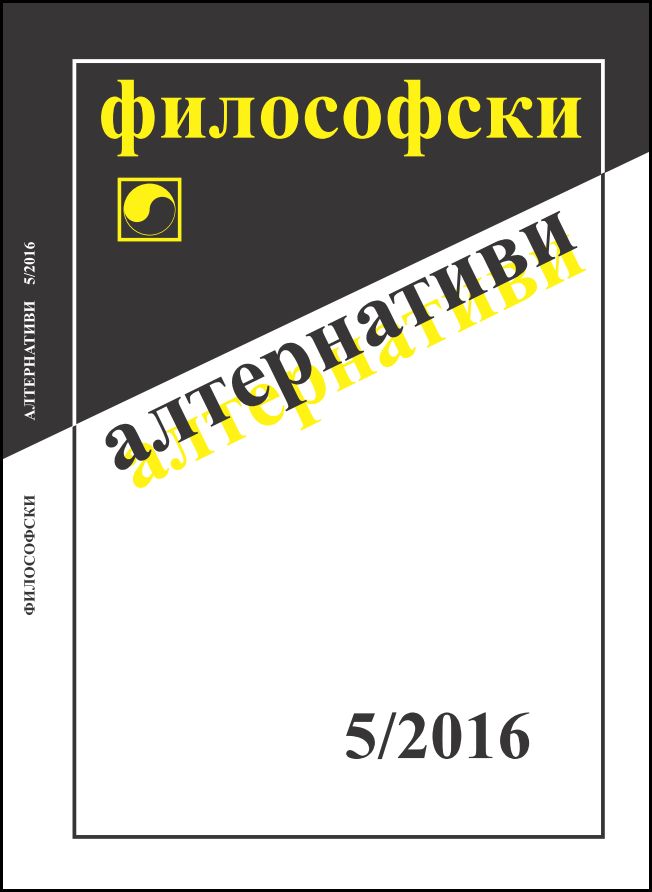
We kindly inform you that, as long as the subject affiliation of our 300.000+ articles is in progress, you might get unsufficient or no results on your third level or second level search. In this case, please broaden your search criteria.

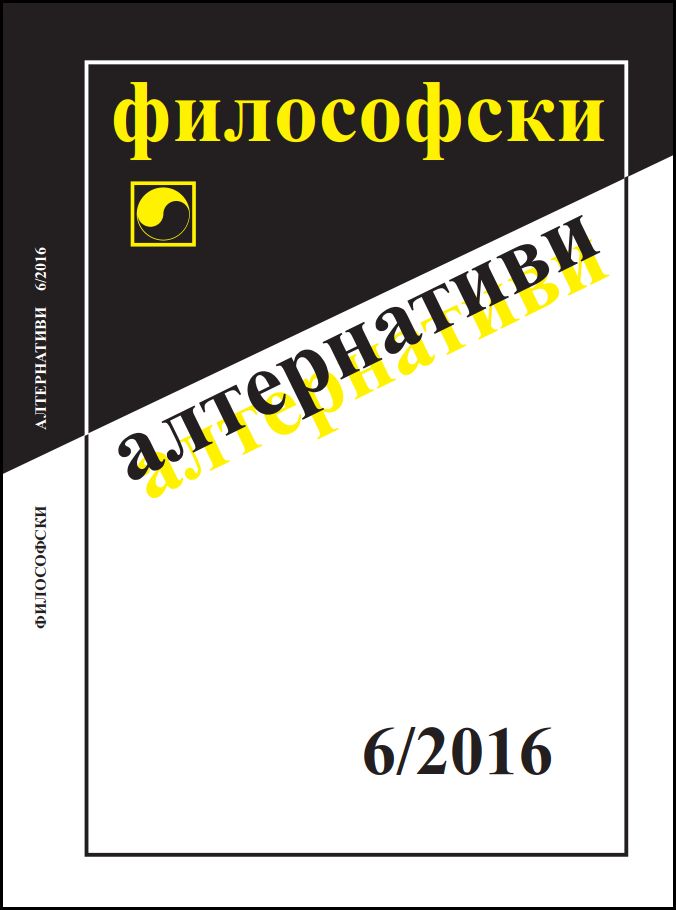
The characters in the work of Nicolás Gómez Dávila are modern man and the progressivist, who are possessed by the superficial spirit of inauthenticity among the topoi of mediocrity, technology as strongly related to the spiritual downfall resulting from a moral-intellectual dementia, literature seen through the eye of the superb connoisseur, language, art, the reactionary, who is a loner in the field of ideas, images and events, proletarians, bourgeois, revolutionaries, socialists and democrats, presented in the masquerade of liberal devastation of personal freedom, the believer and Catholic standing amidst the waves of modernity that advance upon Christianity.
More...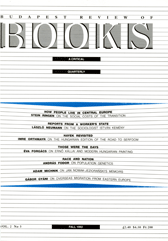
Systematic information on the structure of transformation in Eastern Europe is now forthcoming. The main outlines are known-the collapse of communism, the introduction of democracy, marketisation, the economic hardships-but what are the precise contents of these changes for the people who experience them? So far, we have had to rely on journalistic reports but it is difficult to know how representative these are of the overall patterns and trends of change. It takes time to undertake research and collect statistics, in particular during turmoil such as is current throughout Eastern Europe. Although there are still enormous blank areas on the map and much uncertainty in the available data, we can now start to report what is happening as seen from the life experiences of those who are living through it. The reader will bear with me for piling up statistical data; the story now emerging is one of such drama that it needs to be told in hard facts in order to be absorbed.
More...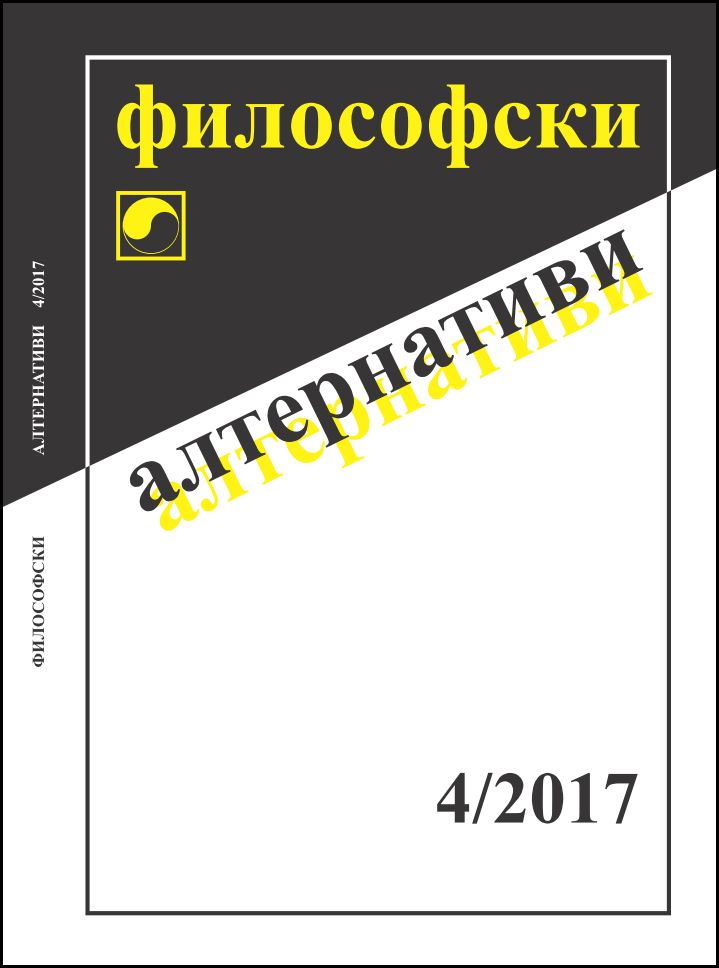
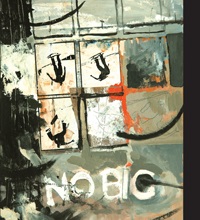
Mučna buka је vjerojatno najneugodnija osjetilna popratna pojava industrijskog rada. Ovo pozivanje na nju podsjeća, čak i one koji se ponose time što su prozreli potrošačko-egalitarno-liberalnu mitologiju, da se roba proizvodi u specifičnim i zadanim društvenim uvjetima, ali jednako tako i u specifičnim i zadanim iskustvenim uvjetima. Kakvo ljudsko značenje i aktualno iskustvo leži ispod naše lagodne uporabe automobila, kozmetike, odjeće i zgrada? Koji se to stupanj mahnitosti, aktivnosti, dosade i patnje opredmećuje u tisućama artikala glamurozno izloženih u robnoj kući? Je li značenje i ugoda potrošnje svih tih stvari imalo važnija od značenja njihove mukotrpne i jednolične proizvodnje? Često se zaboravlja da je za većinu ljudi, veći dio njihova vremena, glavna realnost rad i zvuk rada — brujanje proizvodnje, a ne predenje potrošnje, najopćenitije je obilježje naše industrijske kulture. [...]
More...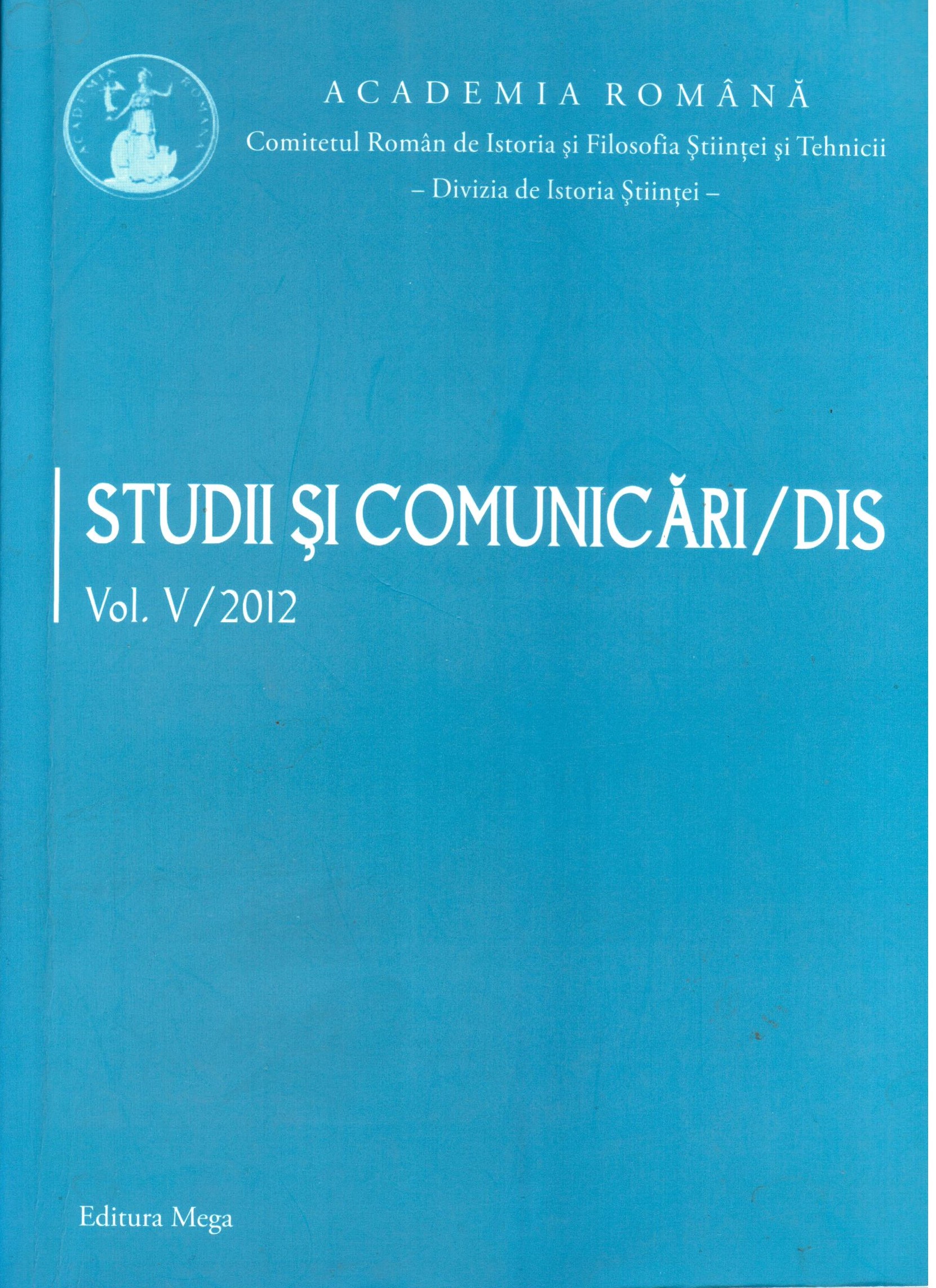
The entire biography of Vasile Goldiş is marked by his firm struggle for Union. This study, Vasile Goldiş, Father of the Romanian Nation – 150th Birth Anniversary, seeks to provide an insight on the life and work of Vasile Goldiş, presenting some aspects of his activities as a teacher, journalist, president of ASTRA, as well of some manuscripts from his correspondence with key figure of the time.
More...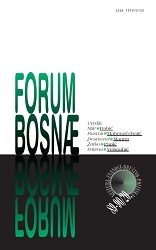
Restriktivne mjere koje su vlasti uvele u drugoj polovini marta kao odgovor na pandemiju nisam doživio kao kaznu. Mogućnost da se radi online iskoristio sam za česte boravke u Fojnici, banjskom mjestu pedesetak kilometara zapadno od Sarajeva. Probeharalo voće, šum vode u jazovima koji prolaze kroz bašče, proljetno zelenilo okolnog brdskog krajolika i sezona proljetnih vrtnih radova čine boravak u prirodi kao melem za dušu i tijelo. [...]
More...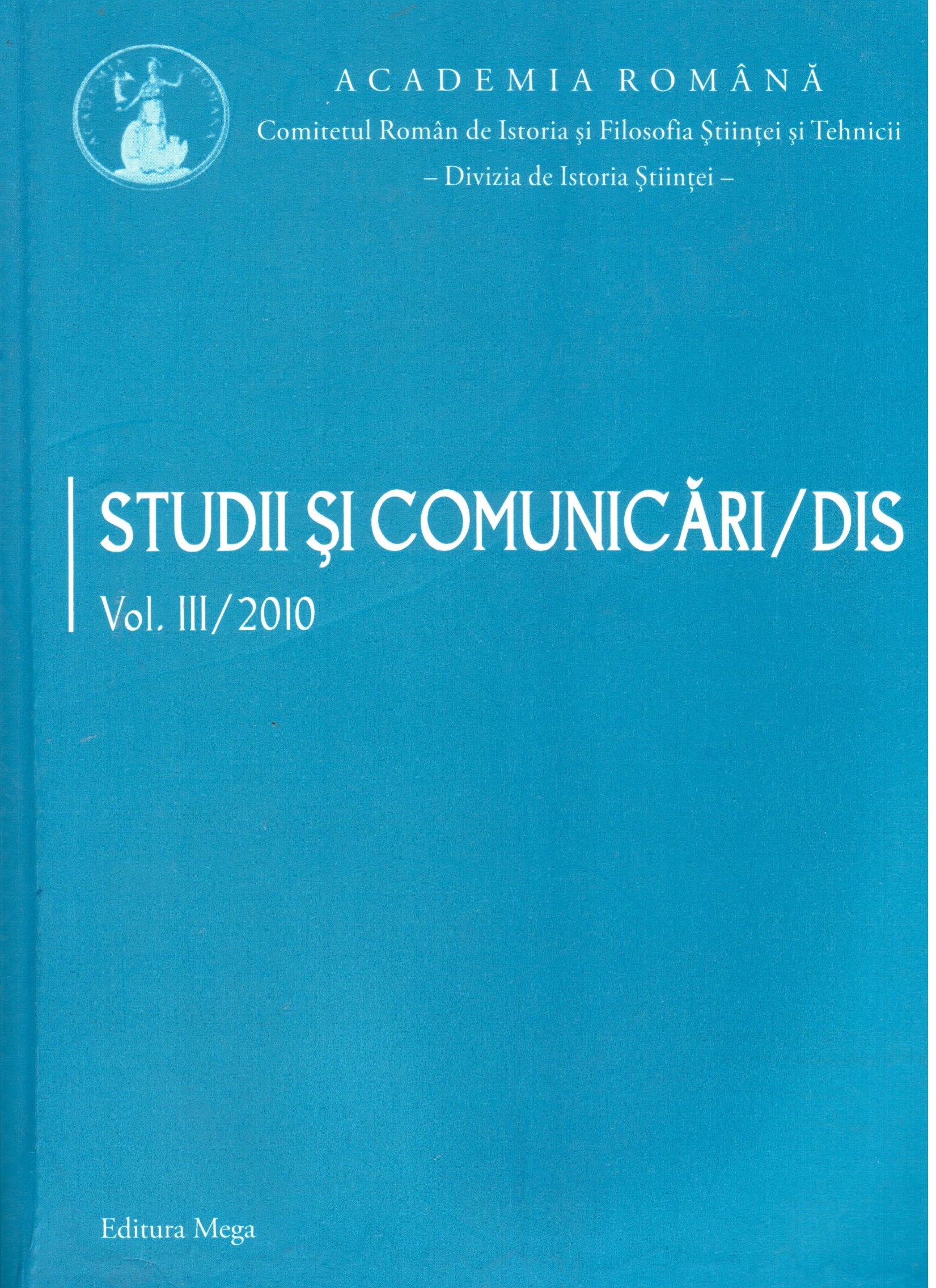
The author embarks upon a study concerning the way the contemporaries and successors of Andrei Șaguna have appreciated throughout the years his contributions to the advancement of the Romanian nation, to the moral and cultural affirmation in the nineteenth century context. In the mean time, he makes a presentation of the plastic art works – sculpture – which were dedicated to this brilliant precursor by sleeping partners and creators. Suggestions are made concerning the creation of new works to complete this patrimony within the next few years.
More...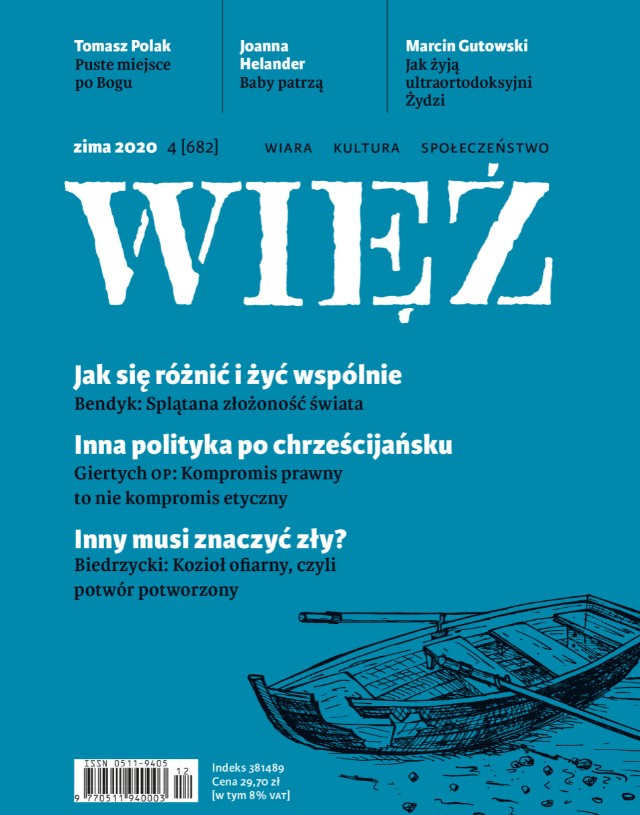
Gdy uporamy się z największym aktualnie zagrożeniem zdrowotnym, będziemy musieli stawić czoła bezprecedensowemu kryzysowi społeczno‑gospodarczemu. Nie da się z nim skutecznie walczyć za pomocą tylko indywidualnych strategii przetrwania, potrzebna będzie jakaś wizja życia wspólnego.
More...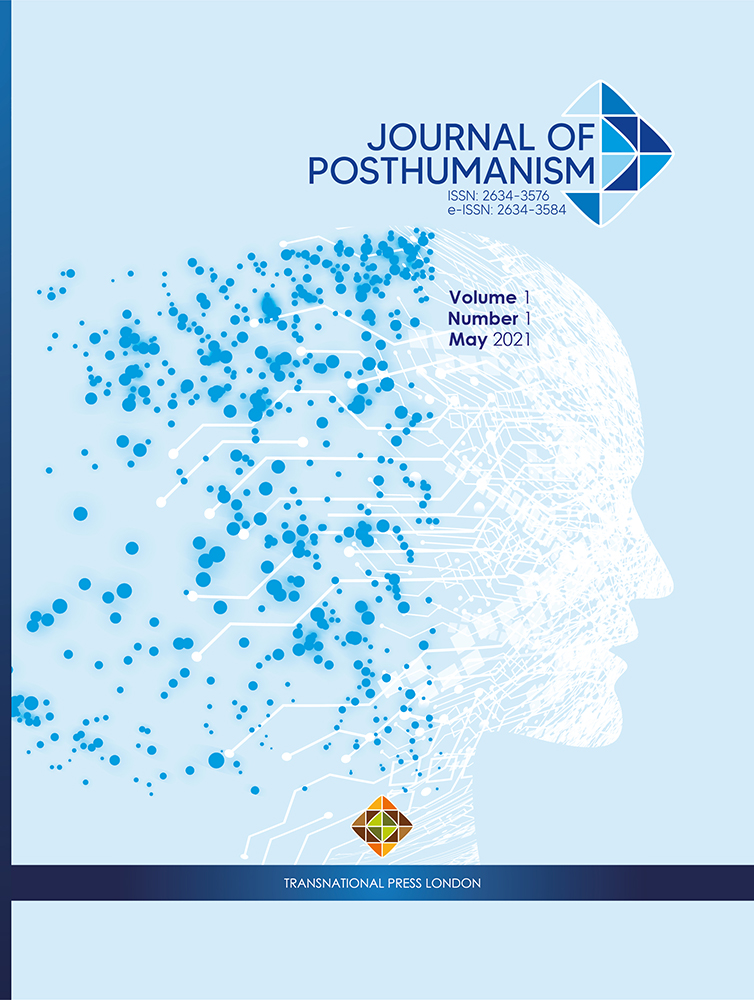
Posthumanism and its core ideas have been spreading in different parts of the world and in various areas of human interest as a response to the multi-faceted problems human and more-than-human worlds are facing. While scholars such as Stacy Alaimo, Karen Barad, Rosi Bradoitti, Donna Haraway, Katherine Hayles, and Cary Wolfe led Posthumanism as a distinct literary and philosophical movement in the late twentieth and early twenty-first centuries, it is rooted in postmodern thinking and its criticism of modernity and humanism, as seen in Ihab Hassan’s work. The human-centric subjectivity of modernity and its logocentricity found its climax in the Enlightenment, which paved the way for the Industrial Revolution in the following century. Through colonialism, modernity and its ideals have become global phenomena, as indigenous cultures have been subsumed under modernity’s principles, and some have gradually disappeared as a consequence. Those who have survived became exotic objects for the modern gaze.
More...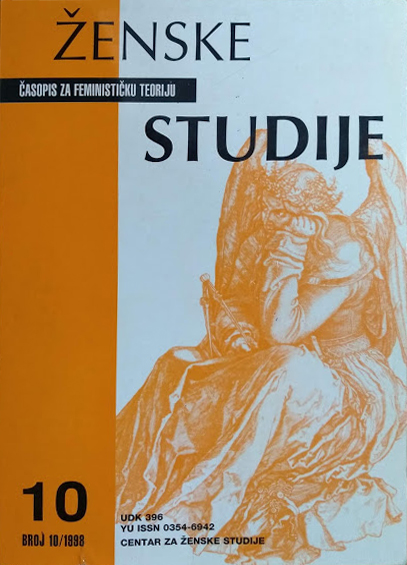
(Iz: Peggy Kamuf, The Division of Literature, or the University in Deconstruction. The University of Chicago Press. Chicago & London, 1997, str. 41-55. Knjiga će uskoro izaći u izdanju Beogradskog kruga.)
More...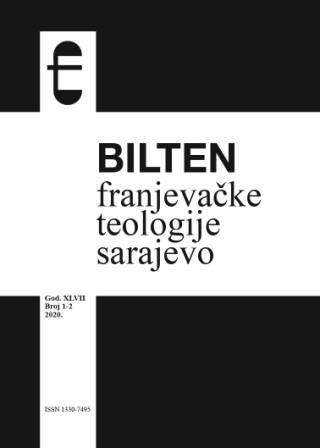
Sve se tako brzo mijenja: slobodno se tržište veličalo desetljećima, sada država spašava poduzeća i radna mjesta. Koji mjesec prije konzervativci su ozlojeđeno reagirali na zahtjeve za oduzimanjem vlasništva. Trenutno političari iz CDU¬a razmišljaju o uplitanju države za spas poduzeća. Već godinama je poznato da su plaće u zdravstvu niske i najednom zdravstveni radnici vrijede kao „relevantni za sustav“. Političari i poslodavci apeliraju na solidarnost građana. Dugo se ta riječ čula samo u crk vama i sindikatima, a u ekonomiji se pohlepa opisivala kao vrlina.
More...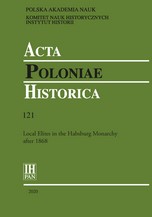
In the previous issue, we published a letter sent to N. fr. Lloyd, apparently from Vienna, in which the non-Magyar nations of the Lands of the Crown of Saint Stephen [Uhorsko] are admonished against cherishing false expectations that, along with Mr Hohenwart’s pre-Litava agreement, the days of more liberal national existence must be dawning also upon them; instead, they should rather grasp the “hand diffidently offered” to them by the Hungarians [Maďari], whereby they eventually forced the latter into considerable concessions; in a word, so that they never expected anything from Vienna, but everything possible from Pest: for from Vienna, disillusion, reactionism, and absolutism may only come over once again; the fruits of true freedom would arrive from Pest, instead.
More...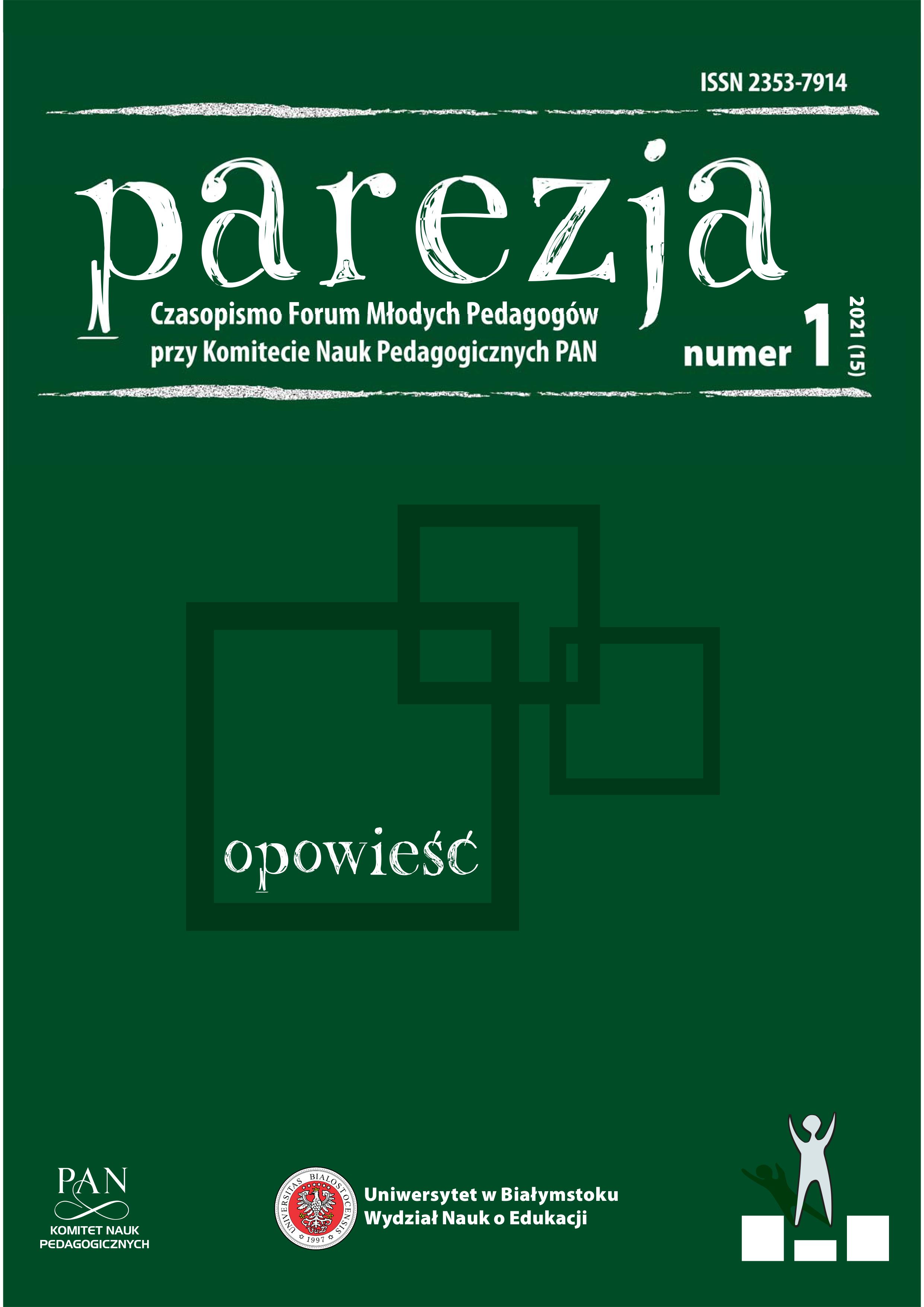
Malgorzata Michel, PhD at Jagiellonian University works at the Institute of Education. Her research focuses mainly on local prevention and rehabilitation systems, studying activity of the „street children” afiliating with youth gang activity and deviant hooligan groups in the context of urban studies. The presented text is the outcome of taking part in Mikolaj Grynberg’s workshops focusing on writing about city memory and personal stories in years 2019-2020. Malgorzata Michel combines being a qualitative researcher set in ethnomethodology and writing skills achieved on later mentioned workshops. Her text is an outcome of a process starting with and interview with a teenage hooligan, ex street gang member. Finally, the author showcases a way to present qualitative data in form of a reportage.
More...
The text is a record that the author found during his journey into the future. It was inspired by the 2050 education conference. Using the secret techniques of non-science, he managed to penetrate a world that does not exist. The author himself does not remember much about this trip. There are only torn images and that piece of paper with a story written by someone. It is not known why this particular fragment has remained. Just as it is not known what hand wrote it. It could be the hand of the author himself. But he is not sure. In any case, he rewrote what was left, added a few footnotes. When asked about his goal, he replies that it was meant to say something at the conference. Besides, he treats this text as interventions. He took it for something. Right where he was. Or maybe even wrote/wrote down. He thinks it might be news from the future that will not come.
More...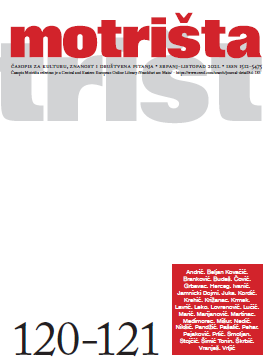
Cultural events held in Mostar from April to September 2021.
More...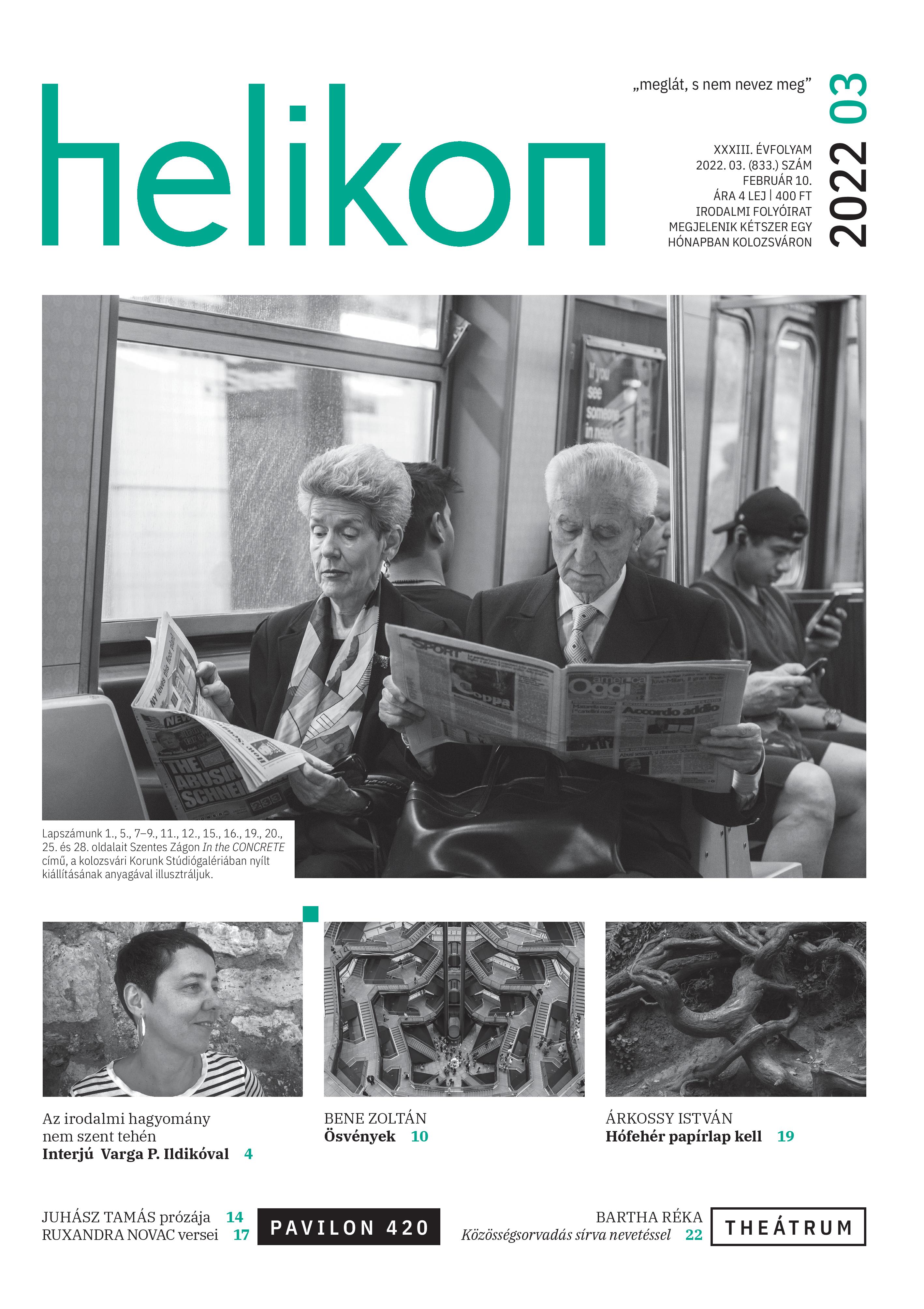
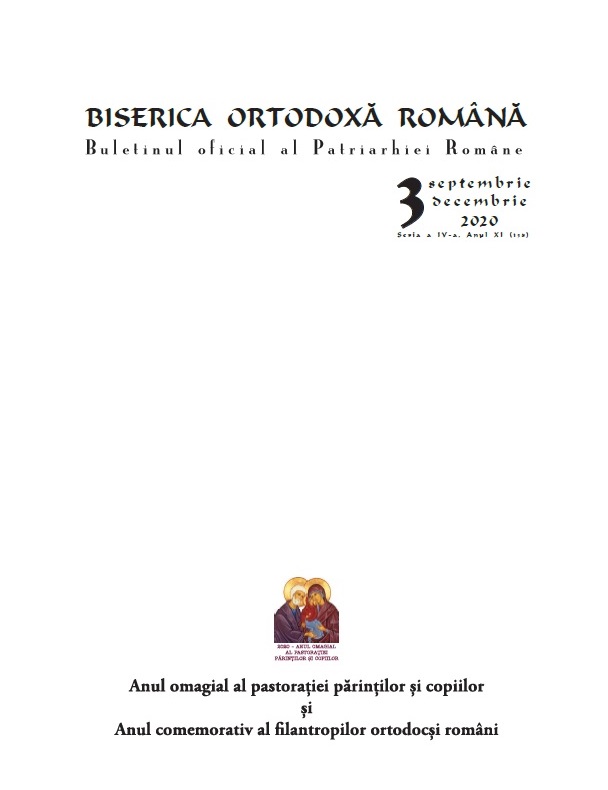
The news of the departure from this world of our beloved brother in Christ Patriarch Irinej of Serbia, brought sorrow to the hearts of all who knew him and appreciated his steadfastness in the Orthodox faith and the love and wisdom with which he served the Serbian Orthodox Church, in particular, and Orthodoxy, in general. From the moment of his election as Primate of the Serbian Orthodox Church in 2010, the wise Patriarch Irinej understood the times he was living in, in a period of rapid political and social transformation, not only in Serbia, but throughout Europe and the world. The way in which he led the Serbian Orthodox Church strengthened its major role in the life of Serbian society, thus, contributing to the rapprochement of the Church to the people and the people to the Church. He militated for preserving and promoting the faith and values of Orthodoxy in a society affected by secularisation. Following the prayer of our Lord Jesus Christ “that all may be one” (John17:21), His Beatitude Irinej distinguished himself as a defender and supporter of both pan-Orthodox unity and inter-Christian and inter-religious efforts for dialogue. In this regard, Patriarch Irinej actively participated in important inter-Orthodox meetings, including the works of the Holy and Great Synod of the Orthodox Church (Crete, June 2016) and the meeting of Primates and representatives of the local Orthodox Churches (Amman, Jordan, February 2020). In the last days of his earthly life, the words of the Holy Apostle Paul: Now Irejoice in my sufferings for you, and in my flesh I fulfil the afflictions of Christ, for Hisbody, which is the Church (Colossians 1:24) acquired a very special, personal significance, in the context of the pandemic caused by the new coronavirus, which affected millions of people, including many of the servants of the holy altars. In these moments of sadness that the Serbian Orthodox Church and the entire Orthodoxy are going through, the words of our Saviour Jesus Christ encourage and strengthen us in our hope by His words: the one who believes in Me, even though he dies, will live (John 11:25). This faith in eternal life is a certainty for us, Christians, because Christ, the crucified and risen Son of God, conquered death and passed us from death to life, and gives rest, peace, and light to those who fell asleep in the faith. Therefore, we pray our Lord Jesus Christ, the High Priest of the good things to come (Hebrews 9:11), to establish the soul of Patriarch Irinej in the dwelling place of the saints, where there is no pain, nor sorrow, nor suffering, but life everlasting. Together with the hierarchs, clergy and faithful of the Romanian Orthodox Church, we address to the Holy Synod of the Serbian Orthodox Church, the clergy and the entire faithful Serbian people, entrusting them of our brotherly love, esteem and compassion.
More...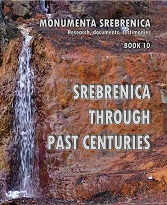
In issues 8 and 9 of “Monumenta”, we remembered the mothers ofSrebrenica: Hatidža Mehmedović, Begija Malagić and Ajša Đozić, whosethree generations of male family members were killed in the crime ofgenocide in Srebrenica in the 1992-1995 war against the Bosnian society andstate. There are many such mothers. The question is whether all of them willever be listed and remain in the Bosniak collective memory as the heroineswhom the criminals killed the children and thus themselves before theirbiological death. In this issue of “Monumenta” we will remember the “sadfate”, four sisters, four daughters of Ibrahim Bektić (1901-1972) and Havka(1902-1959), born Mujić, from Mehmedovići near Tokoljaci, the Srebrenicamunicipality, and their brothers Ohran (1935-1995) and Daut (1950-2021).Why them? The previous two examples of “Memories” show individual casesof genocide within a family, without indicating its “width” along the side linesof relatives, such as sisters and brothers. With this case, which is unfortunatelyone of many, we will show the scale of the family tragedies of the sistersand brothers in the crime of genocide against Bosniaks in Srebrenica.
More...